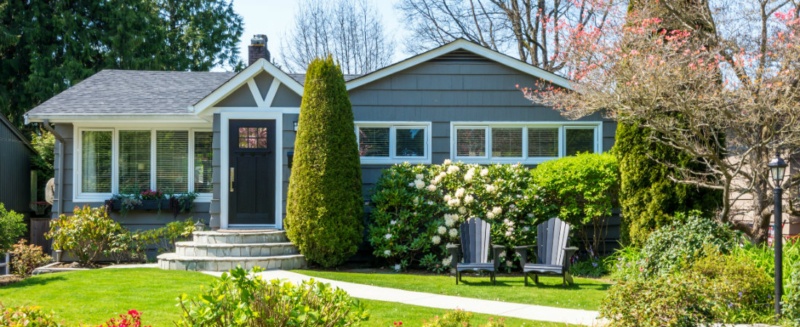What is your “forever” home? And, how old will you be when you buy it?
Turns out, the magic age to buy forever homes, the home in which you will ostensibly spend the rest of your life, is anytime after you turn 52, according to the 2017 Home Buyer and Seller Generational Trends Report, published by the National Association of Realtors (NAR).
“When we look at homebuyers who are age 52 to 61, they plan on living in their newly-purchased home for 20 years. This is their forever home,” explains Jessica Lautz, NAR managing director of survey research and communication.
“Buyers who are age 62 to 70, are partly in retirement or scaling back and only plan to live in the home for 15 years. But If you purchase over age of 52, you’re looking at this purchase as your forever home,” she adds.
Coincidentally, Americans who are 52 years old in 2016, which is the year the report was conducted, fall into the last year of the official Baby Boom generation, which refers to those Americans born between 1946 and 1964. It is also in the middle of the most popular decade for vacation home buyers, 45 to 55 years old.
According to Lautz, as you age, the type of home you buy, where you buy it and what you plan to use it for changes as well.
“People are staying active longer and they’re living healthier lifestyles. But by age 70, nearly a quarter of home buyers are purchasing a home in senior-related housing,” Lautz says. “It could be an active adult community, where you live in a single-family home, or a condo or single-floor living, or in an assisted living facility of some kind.”
Lautz says that many Americans buy vacation homes with the idea that they are “forever homes,” or will be the place that they ultimately retire. And they may have been thinking about the forever home destination for years, if not decades.
The introduction of the report acknowledges that while buyers of “primary residences typically purchase homes because of the desire to be a home owner [SIC], a change in their family situation, or due to a job relocation, buyers of vacation and investment homes are motivated by other factors. Forty-two percent of vacation home buyers plan to use their property for vacations or as a family retreat, 18 percent plan to convert their vacation home into their primary residence in the future for retirement, and 12 percent because of low real estate prices and the buyer found a good deal.”
And while more vacation home buyers intend to make use of technology to rent out their properties for short periods of time, fewer buyers overall are purchasing vacation homes, according to NAR’s 2017 Vacation and Investment Home Survey. The share of home buyers purchasing a vacation home fell for the third year in a row to 12 percent.
If you’re going to buy a vacation home and rent it out to defray costs before it becomes your “forever home,” you’ll need to be aware of how the IRS treats vacation homes that bring in some rental income.
According to the IRS’ website (irs.gov), if you rent out your vacation house for more than 14 days or 10 percent of the total days you rent it to others at a “fair rental price,” then your vacation house is considered a residence rather than an investment property.
The IRS defines “personal use of a dwelling” as any day it is used by you or anyone else who is an owner of the property, a member of your family or the family of the other owners of the property (unless one of these people is using it as their primary residence and paying you rent), an agreement where you swap properties with another owner of a different property and anyone who pays you less than the fair market rent.
If you both rent the property and use it personally, you’re supposed to divide the expenses between the rental use and personal use based on the number of days for each use. For example, if you rent out the property half the time, you’d divide the property expenses equally. (There are some other, more complicated rules that apply once a property is characterized as an investment property that you should discuss with your tax preparer.)
If you only rent the property for 14 days a year, the IRS says you don’t have to report any of the rental income and aren’t required to deduct the expenses as rental expenses. And as long as you don’t rent your home for more than those 14 days, you can deduct the mortgage interest you pay on your second home up to a total of $1.1 million between your primary and second homes. You can also deduct your property taxes.
If you’re thinking about turning your vacation home into your “forever home,” and moving there full-time, you should investigate other property tax breaks that are available. For example, you can probably file for a homestead exemption for primary residences, and perhaps even an age-based deduction that gives seniors an even bigger tax break. (Check with the tax assessor’s office for details.)
When it comes to buying your forever house, it’s important to understand why you’re buying it, Lautz said.
And, there may be several reasons why buying in one location over another is a smarter move.
In addition to using the property for family reunions and vacations, buyers of forever properties might want to think about a particular state’s tax ramifications or year-round access to recreational opportunities. They might also consider access to medical facilities and whether the area is a draw for their children and grandchildren.
Lautz said forever property buyers will look to smaller communities over cities, and resort-like destinations with beaches and waterfront, the mountains or more rural areas.
A husband and wife, who recently celebrated their 30th wedding anniversary and live full-time in a cold weather climate, bought a vacation home a few years ago on an inland waterway in the southern part of Florida. The home is a frequent getaway spot during the winter, but given the state’s tax benefits, may wind up serving as a retirement home where the couple spends at least 6 months plus one day per year.
Why did they buy when they did? “We were offered a deal,” said the wife of the nearly new, fully-furnished home. “And, we could afford it.”
Ilyce Glink is the Founder/CEO of Best Money Moves and the Publisher of ThinkGlink.com.







[…] Read the source article at Blog | ThinkGlink […]